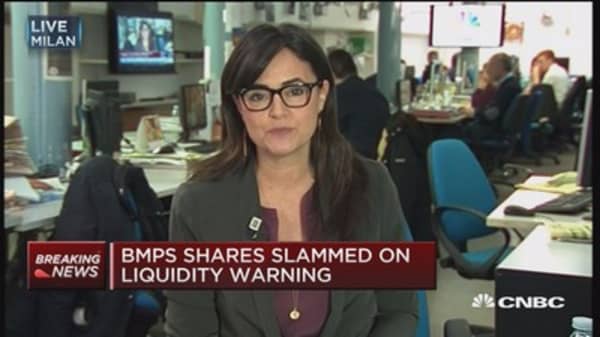
Getty Images
Then-Prime Minister Matteo Renzi speaks after the Italian referendum on constitutional reforms, Palazzo Chigi, Dec. 5, 2016, Rome.
Sluggish economic growth has cut into the demand for new loans, which has hammered European bank profits. Ultra-low interest rates have prompted many companies to borrow in the credit markets by issuing bonds, further cutting into loan demand.
Weak profits, in turn, have further hampered efforts by Europe's bankers to rebuild the capital they need to write off bad debts. Now, as the U.S. Federal Reserve embarks on a new policy of gradually raising interest rates, European bankers will continue to struggle with the low profit margins generated by low rates.
Rising rates, which tend to reduce the value of long-term debt securities, could also erode the capital base of banks holding government bonds on their balance sheets.
Political forces also pose a persistent threat. British voters' decision in June to leave the European Union has prompted voters in other countries to consider similar moves.
And much as U.S. voters' economic anxiety propelled President-elect Donald Trump to the White House, Europe's malaise has given strength to the deglobalization movement there.
Prime Minister Matteo Renzi resigned after Italian voters rejected a referendum calling for reforms intended to spur growth. The vote was seen as a victory for Italy's nationalist Five Star Movement.
"If Italy moves out of the euro zone and away from the European Union, the economic and financial implications will throw European economies into a depression," said Carl Weinberg, chief economist at data analysis firm High Frequency Economics.





